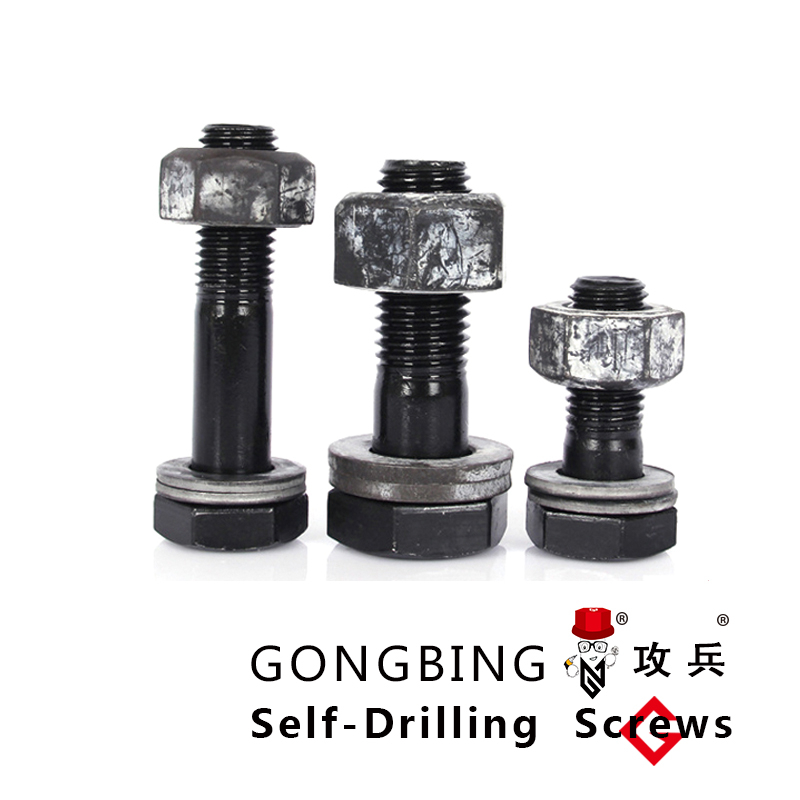Self-Tapping Screws with Hex Head for Secure Fastening Solutions
Understanding Hex Self-Tapping Screws A Comprehensive Guide
In the realm of construction and engineering, fastening devices such as screws are pivotal in ensuring the structural integrity of various assemblies. Among the different types of screws available, hex self-tapping screws have gained considerable popularity due to their efficient and reliable performance. This article aims to elucidate the characteristics, advantages, and applications of hex self-tapping screws, highlighting their essential role in various sectors.
What are Hex Self-Tapping Screws?
Hex self-tapping screws are specialized fasteners that thread themselves into a material as they are driven in, eliminating the need for pre-drilled holes. The hex in their name refers to the hexagonal head design, which allows for the use of a wrench or socket for driving the screw. This head design offers a solid grip, making it easier to apply greater torque, which is especially beneficial in demanding applications.
These screws are typically made from materials like stainless steel, carbon steel, or other alloys, providing durability and resistance to corrosion. The self-tapping feature is facilitated by a sharp tip that cuts into the material, thereby creating its own threads. This attribute not only speeds up the assembly process but also enhances the strength of the connection made.
Advantages of Hex Self-Tapping Screws
1. Time Efficiency One of the primary advantages of hex self-tapping screws is the time saved during installation. Since they do not require pre-drilling, users can quickly secure components together without additional steps.
2. Strong Connection Due to the way these screws create their own threads, they tend to have a strong grip in the base material, which translates to a more durable and secure connection.
3. Versatility Hex self-tapping screws can be utilized across a variety of materials, including wood, metal, plastic, and composite materials. This adaptability makes them suitable for multiple applications, from home improvement projects to industrial machinery assembly.
hex self tapping screws

4. Reliability The design of hex self-tapping screws ensures that they maintain their integrity under stress. Their ability to resist loosening under vibration makes them a reliable choice in applications where movement is prevalent.
5. Ease of Use The hexagonal head allows for a range of tools to be employed, including wrenches and impact drivers. This flexibility means that both professionals and DIY enthusiasts can use these screws with confidence.
Applications of Hex Self-Tapping Screws
Hex self-tapping screws find applications in a wide spectrum of industries. In construction, they are commonly used for framing and attaching structural elements. In automotive manufacturing, these screws play a crucial role in assembling components, where reliability is paramount.
Electrical installations also benefit from the use of hex self-tapping screws; they provide secure attachment of electrical panels and fixtures. In furniture assembly, these screws help to create sturdy joints, ensuring that pieces fit together seamlessly.
Additionally, the aerospace and defense industries utilize hex self-tapping screws, where precision and strength are critical factors. The ability to create strong connections in lightweight materials is particularly important in these fields.
Conclusion
In conclusion, hex self-tapping screws are an essential fastening solution in various industrial, construction, and DIY applications. Their self-threading capability, coupled with the strength and reliability they offer, make them an invaluable choice for professionals and hobbyists alike. Understanding the advantages and applications of hex self-tapping screws can lead to better decision-making in fastening requirements, contributing to safer and more robust constructions. Whether you are building a sturdy deck, assembling machinery, or completing a home improvement project, hex self-tapping screws are sure to be a practical and efficient choice that will stand the test of time.
-
Weatherproof Plastic Expansion Anchors for OutdoorNewsJun.06,2025
-
Sustainability in the Supply Chain: Eco-Friendly TEK Screws ProductionNewsJun.06,2025
-
Load-Bearing Capacity of External Insulation FixingsNewsJun.06,2025
-
Double Head Bolts: Enhancing Efficiency in Industrial MachineryNewsJun.06,2025
-
Corrosion Resistance in Chipboard Screws: Coatings for Wholesale DurabilityNewsJun.06,2025
-
Butterfly Toggle Bolts : Enhancing Structural ResilienceNewsJun.06,2025
